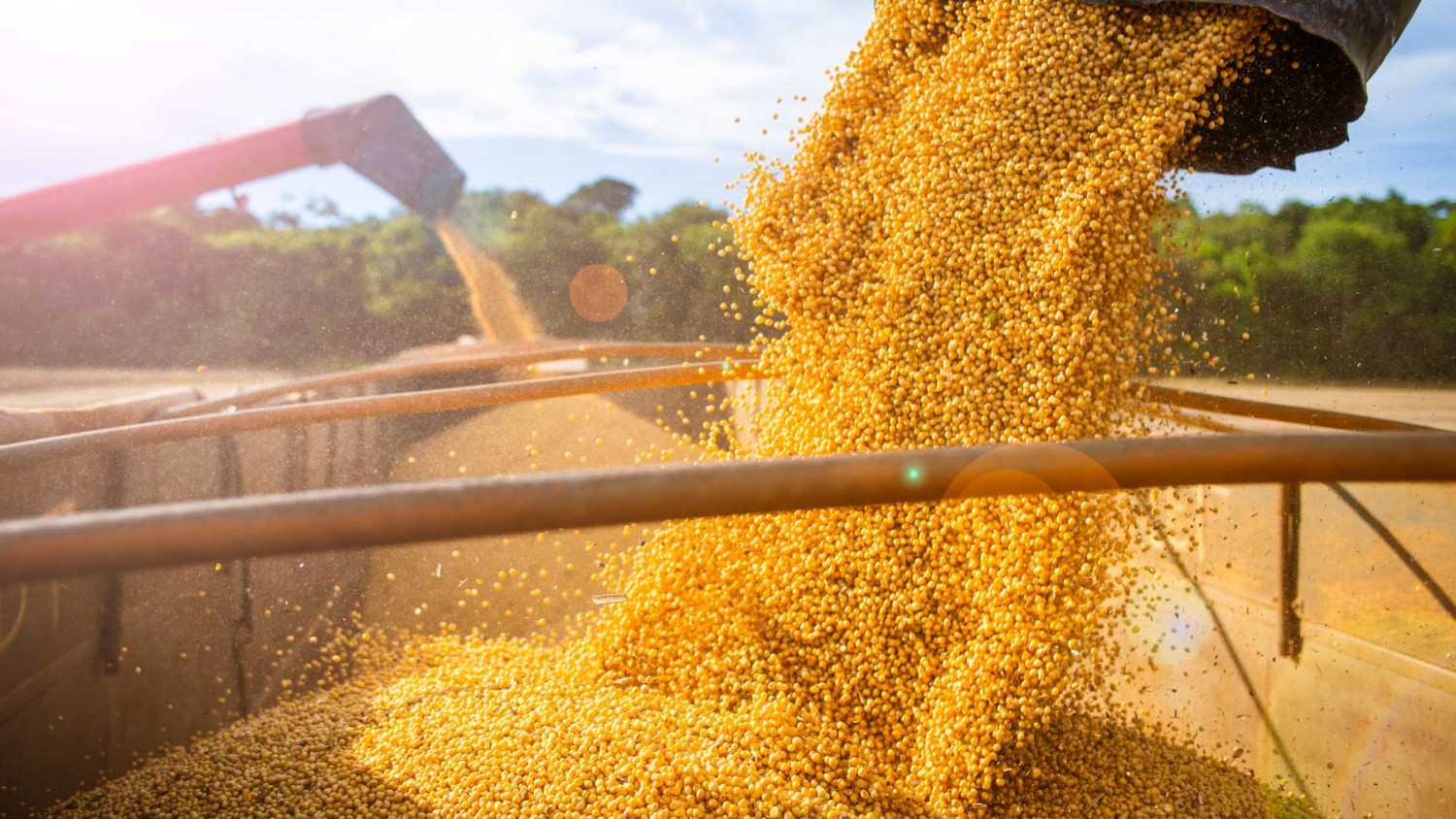The good news of the first quarter of 2018 was cocoa’s 37% rise on the New York futures market. All that was needed was a bit of drought to erase some of the losses of 2017. We must hope that cocoa will now escape our irascible ‘tweetomaniac’, the dear Donald who, with the departure of his only remaining moderate advisers, has rung in a new era - ‘Trump unbound’.
For commodities markets, these last weeks have been marked by a serious escalation, of which the American sanctions on aluminium and steel were only a modest appetizer. From now on, the clashes are out in the open between the United States and China, which, it should be said, is showing a certain restraint vis-à-vis the hawks of the White House (Lightizer, Bolton, Navarro).
Raymond Aron’s famous phrase about the cold war, “Peace is impossible, war is improbable“, which seemed still to apply a few days ago, is now almost passé as our sorcerer’s apprentices attack the International Coffee Agreement, which is guilty of no wrong doing not having had any economic clauses for some time, but which was a forum for dialogue between producers and consumers!
Even if these differences concern manufactured goods and are geopolitical by nature, raw materials and commodities are the battlefield: besides steel and aluminium, we find in first or second line, soya and pork and wine and fruit on the Chinese side, Iranian oil and gas on the American side, not to mention the impact of the sanctions on Russia and its oligarchs, as well as the probable embargo against Iran.
The tragedy is that some of these measures may be legitimate, but by going at it wildly, Donald Trump has managed to discredit the United States, especially vis-à-vis their partners.
In any case, this contrasts with the great sun that continues to reign on the world economic scene, justifying the subtitle of CyclOpe 2018:
“Der Himmel Lacht, Die Erde Jubilieret”
Heaven Smiles, the Earth Rejoices… but alas, the folly of man endures. CyclOpe 2018 will be presented on 16 May, 2018 and all friends of CyclOpe are invited to the symposium, which will take place on this occasion in Paris.
By Philippe Chalmin
To subscribe to the Monthly Report or Cyclope events please contact us at trading_event@ampersandworld.ch
Commodities Markets Brief
The production of Côte d’Ivoire’s ‘small’ cocoa season is expected to be down 23 percent, according to the Cocoa and Coffee Council. In addition, the Ivorian and Ghanaian authorities have come together to coordinate the guaranteed prices to the planter in both countries and thus avoid illegal exports in either direction. Also, the World Bank has obtained a right of inspection over the operation of the sector in Côte d’Ivoire in exchange for a loan of USD 300 million.
The United States has decided to leave the International Coffee Organization (ICO) and is withdrawing from the 2007 International Agreement. This is not a big deal but is symbolic.
Art Basel in Hong Kong is maintaining the fever on the art market: a 1975 De Kooning (Untitled XII) sold for USD 35 million. In Maastricht, a Van Gogh sold for USD 9.5 million.
In February 2018, the world produced 131.8 Mt of steel, up 3.5% on February 2017: 64.9 in China (+5.9%), 13.5 for the EU, 6.4 in the United States (-0.4).
The ‘Blue Sky 2018’ campaign in China aims to control the ban on importing waste of insufficient quality. This affects paper and plastics in particular.
For the first time since 1957, the United States became a net exporter of natural gas in 2017.
According to the ILZSG, 880,000 tonnes of additional zinc capacity and 123,000 tonnes of lead will come into production in 2018.
For the first time in 35 years, soybean sowing will surpass that of corn in the United States: 89 million acres against 88!
According to estimates by Reuters, confirmed by many observers, the GASC, the administration that handles most of Egypt’s wheat purchases, is paying at least USD 5 more per tonne because of the rigidity of its system in financial matters (performance bond over six months) and logistics. Over a year this represents USD 80 million!
ISAA estimates that in 2016, 185 million hectares were planted with GMOs worldwide. 92 million hectares of soybeans (78% of world production), 60 million hectares of maize (33%), cotton (64%), rapeseed (25%) for 8.6 million hectares.
In 2017, the United States exported 15 million tonnes of scrap, of which 3.6 Mt to Turkey. China remains the world’s largest consumer with 148 Mt and has even begun to export (2.2 Mt in 2017).
For the first time in China (CNPC) has exported gasoline to the United States, which clearly indicates a situation of oil refining overcapacity in Asia.
In 2017/2018, India will generate a surplus of 5.3 Mt of sugar for a record production of 30.3 Mt. The government has embarked on a pro-active export campaign.
The gold/silver ratio is 81.5, the highest in two years. Gold is benefiting from rising international tensions as silver suffers from a surplus situation. The gold market is also fifty years old since it was in 1968 that President Johnson removed the gold cover from the US Treasury and the London Gold Pool abandoned its efforts to maintain the free market at the official price level of USD 35 an ounce. In 2018, global gold demand is expected to increase by 1% to 3969 tonnes, according to Metal Focus which forecasts an average price of USD 1450 an ounce.
In China, in the aftermath of the New Year’s holidays, the steel market registered a sharp decline: in March, the Shanghai contract for reinforcing bars fell by 15%. Apparently, the construction sector is struggling to restart.
In February, OPEC and its allies reached a record 138% compliance with their oil export commitments. On the other hand, Azerbaijan is about to join OPEC.
The minor platinoids are at their highest since the beginning of the decade, thanks to industrial demand, notably from the automotive industry: USD 1975 an ounce for rhodium, USD 208 for ruthenium, USD 1010 for iridium.
By 2018, India is expected to approach the level of 5 mbd of oil imports. India is gradually diversifying its sources and so becoming less dependent on the Gulf.
The trade war between the United States and China now includes soy with a 25% tax imposed by China on US soybeans (among 105 other products). But China will not find the soybeans it needs elsewhere…
In March, OPEC pumped 32.19 mbd of oil against a posted quota of 32.73 mbd, thanks to the continued collapse of Venezuela’s output (1.56 mbd). Russia produced 10.97 mbd, just at the limit of its reduction commitments of 300,000 mbd compared to October 2016 (11.247 mbd).
The price of molybdenum has doubled since December 2015 to USD 13 / lb. Molybdenum is used in the production of special steels, particularly for the oil drilling sector. 60% of production is a by-product of copper.
Commodity Ephemeris
March – April 2018
5/3
• Elections in Italy: populist victories
• Resignation of Gary Cohn (Donald Trump’s Economic Advisor)
• Chinese National Assembly Meeting and ‘Vote’ on Xi Jinping’s Retention
• Trump/Kim Summit Proposal
• Signature of the CPTPP without the United States
12/3
• American veto on the acquisition of Qualcomm
• ‘Dismissal’ of US Secretary of State Rex Tillierson
• Announcement of US measures against China
• Unilever brings its headquarters back to Rotterdam
19/3
• Pan-African Free Trade Agreement
• First rise in US rates under Jay Powell’s term
• Appointment of John Bolton: ‘Trump unbound’
• The United States taxes USD 60 billion worth of imports from China at 25%
• Crisis at Facebook
26/3
• Launch of a crude oil contract in Shanghai
• Agreement on the Review of the Free Trade Agreement between the United States and South Korea: quotas on steel
• ‘Re-election’ of Marshal Sissi in Egypt
2/4
• Chinese retaliation against the United States
• Arrest of Lula in Brazil
• US sanctions against Russian oligarchs including Oleg Deripaska (Rusal)















